Agriculture
Innovation in Agriculture: Dr. Hadi Gombe’s Solar-Powered Irrigation Revolution
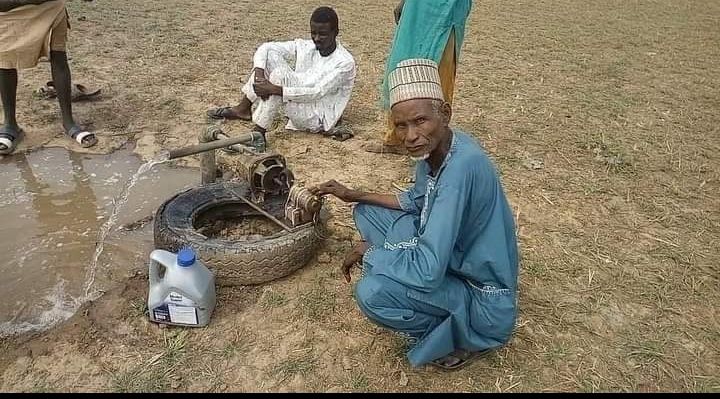
By Our Correspondent
In the sweltering heat of the summer sun, where crops often wither under the weight of water scarcity, a groundbreaking innovation is transforming agricultural practices. Dr. Hadi Gombe, a forward-thinking agricultural scientist and innovator, has successfully tested a compact solar-powered irrigation pump that could redefine farming in arid and semi-arid regions like Gombe State and beyond.
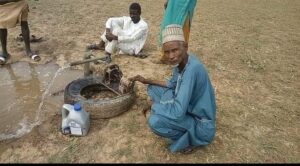
The experiment, conducted on Dr. Gombe’s summer crop fields, demonstrated remarkable results. The pump, which operates using a solar-charged battery, simplifies the process of watering crops and eliminates the need for fuel, a traditionally expensive and environmentally taxing resource.
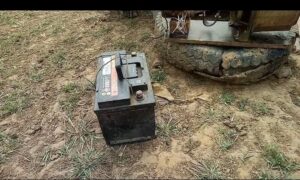
“Farming, especially in the dry season, has always been a challenge,” Dr. Gombe said during an interview on his farmland. “I wanted a solution that not only eases this burden but also promotes sustainability for small-scale and large-scale farmers.”
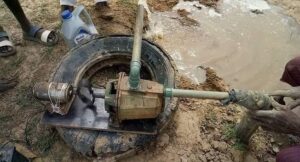
How It Works
The compact irrigation pump is a model of efficiency and eco-conscious design. Equipped with a lightweight but durable battery, it captures and stores solar energy during the day. This energy powers the pump, which draws water from a source—whether a river, well, or reservoir—and delivers it to the crops through an efficient irrigation system.
Unlike traditional fuel-powered pumps, which require ongoing expenditure on petrol or diesel and emit harmful pollutants, this solar-powered alternative offers cost savings and reduces environmental impact.
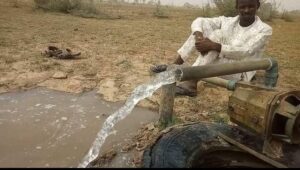
The Testing Phase
Dr. Gombe selected a variety of summer crops, including maize, vegetables, and legumes, to test the versatility of the pump. The results exceeded his expectations. The system delivered consistent water flow, even on cloudy days, thanks to the battery’s capacity to store excess energy.
“The crops were healthier, and the process was seamless. I didn’t have to worry about stopping midway to refuel or maintaining a noisy machine. It was a game-changer,” he explained.
Implications for Farmers
The implications of this innovation are immense, particularly for farmers in Gombe State and other regions where access to water and fuel is often limited. By reducing dependency on non-renewable energy sources, the pump offers a sustainable alternative that aligns with global efforts to combat climate change.
Additionally, the cost savings from eliminating fuel purchases could be reinvested in other farming activities, potentially increasing yields and profits.
A Vision for the Future
Dr. Gombe’s work is part of a broader vision to modernize agriculture in Gombe State and across Nigeria. He plans to collaborate with local government and international organizations to make the technology widely accessible.
“My hope is that this technology empowers farmers, especially those in rural areas, to maximize their productivity without depleting their resources or harming the environment,” he said.
Dr. Hadi Gombe’s innovation stands as a testament to the power of local solutions for global challenges. As farmers in Gombe and other parts of the country adopt this solar-powered irrigation pump, the future of agriculture looks brighter—and greener—than ever before.
Agriculture
No Entry for Herders Till January 2026, Gombe Orders LG Chairmen
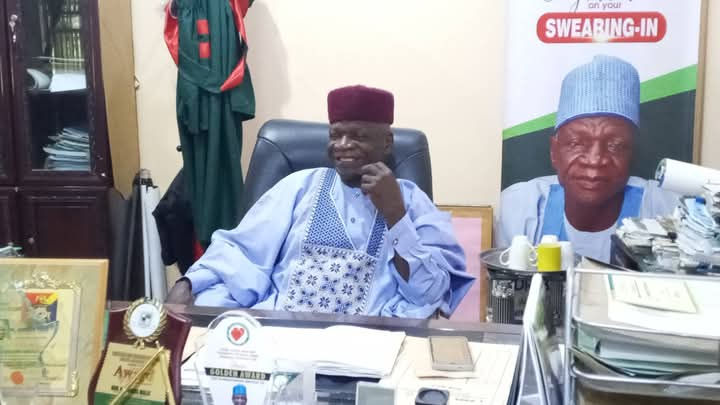
By Our Correspondent
The Chairman of the Gombe State Farmers/Herders Settlement and Dispute Prevention Committee, Dr. Barnabas Malle, has directed chairmen of the eleven local government areas particularly those sharing borders with other states to intensify efforts in blocking herders’ entry points until the end of January 2026 to ensure a peaceful and successful harvest season.
Dr. Malle, who is also the State Commissioner for Agriculture, Animal Husbandry, and Cooperatives, gave the directive during a meeting with committee members held at the ministry’s conference hall. The meeting was convened to review last year’s achievements and to strategize towards ensuring a hitch-free harvest this year.
The commissioner emphasized that inter-local government movement of herders remains restricted, while the ban on night grazing between 6:00 p.m. and 6:00 a.m. is still in full force. He also cautioned farmers against harvesting or transporting crops during the same night hours, stressing that such measures are aimed at preventing unnecessary conflicts and ensuring safety across the state’s farming communities.
Dr. Malle urged both farmers and herders to refrain from taking the law into their own hands, advising them instead to report any grievances or disputes to the nearest authorities for prompt and lawful resolution.
While expressing appreciation to Governor Alhaji Muhammadu Inuwa Yahaya for his unwavering commitment to policies that promote peaceful coexistence between farmers and herders, the committee chairman called for the continued support of traditional rulers and security agencies to ensure the success of this year’s exercise.
In their separate remarks, the Commissioner for Internal Security and Home Affairs, Lt. Col. Abdullahi Bello (Rtd), and the State Chairman of Miyetti Allah Cattle Breeders Association, Alhaji Modibbo Yaya, commended the committee’s efforts and the cooperation received from both farmers and herders. They pledged to strengthen their collaboration to sustain peace and protect the gains recorded in previous farming seasons.
The state’s proactive stance aims to prevent the perennial farmers, herders conflicts and safeguard agricultural productivity as the harvest season peaks.
Agriculture
Court Remands Ex-AFAN President Arc. Kabir Ibrahim Over Impersonation, Intimidation Charges
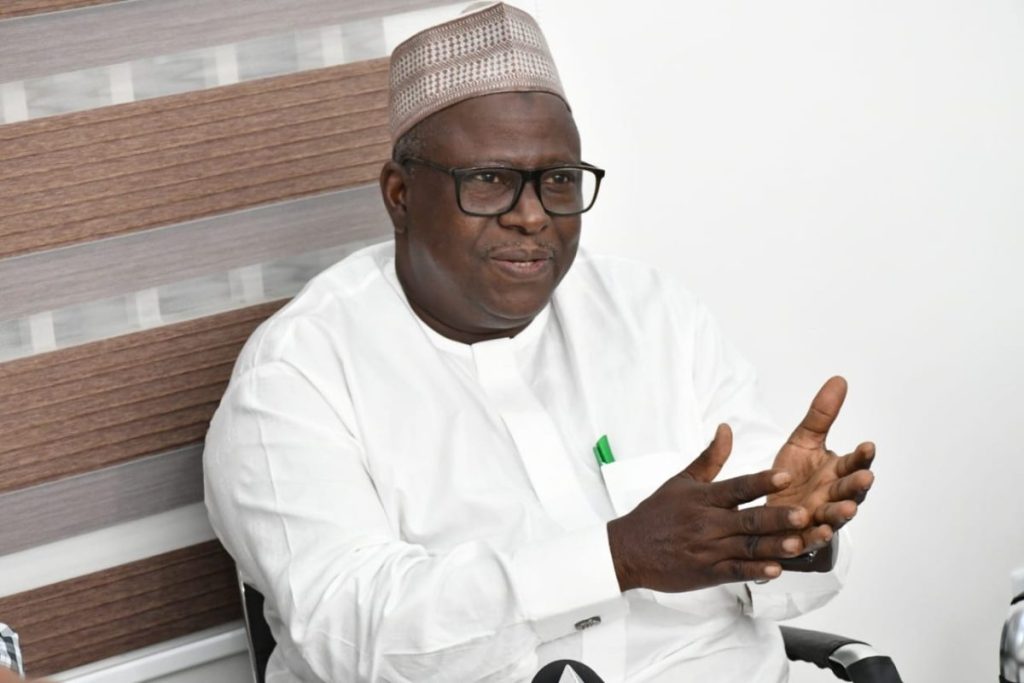
By Our Correspondent
A Magistrate Court sitting in Zone 6, Abuja, has ordered the remand of Arc. Kabir Ibrahim, a former president of the All Farmers Association of Nigeria (AFAN), at the Keffi Correctional Centre on charges of impersonation, criminal intimidation, and incitement.
In his ruling, Magistrate Ekpeyong held that Ibrahim had exceeded his lawful tenure but refused to relinquish office, despite the election of Dr. Farouk Rabiu Mudi as AFAN’s national president in 2021. The court noted that Ibrahim had lost at both the Federal High Court and the Court of Appeal, yet continued to parade himself as president, in contravention of Sections 132, 397, and 114 of the Penal Code.
“Your persistent acts of impersonation and intimidation are unlawful and capable of causing public disorder within AFAN and beyond,” the judge declared.
Unable to meet his bail conditions, Ibrahim was remanded in custody pending trial.
Reacting to the judgment, Dr. Mudi accused Ibrahim of sabotaging AFAN’s programmes and frustrating investment opportunities in the agricultural sector. He alleged that Ibrahim wrote letters to the Nigeria Sugar Development Council (NSDC) and Tingo Mobile, actions which, according to him, undermined farmers’ access to loans and foreign investment.
“These deliberate acts deprived millions of farmers of opportunities meant to boost food security and strengthen the agricultural value chain,” Mudi said.
Meanwhile, police confirmed the arrest of another associate, Chief Okafor, who allegedly styled himself as AFAN vice president. Security agencies are still tracking other alleged accomplices across the country.
The case has been adjourned for continuation of hearing.
Agriculture
Propcom+ trains journalists on Climate-Smart Agriculture reporting
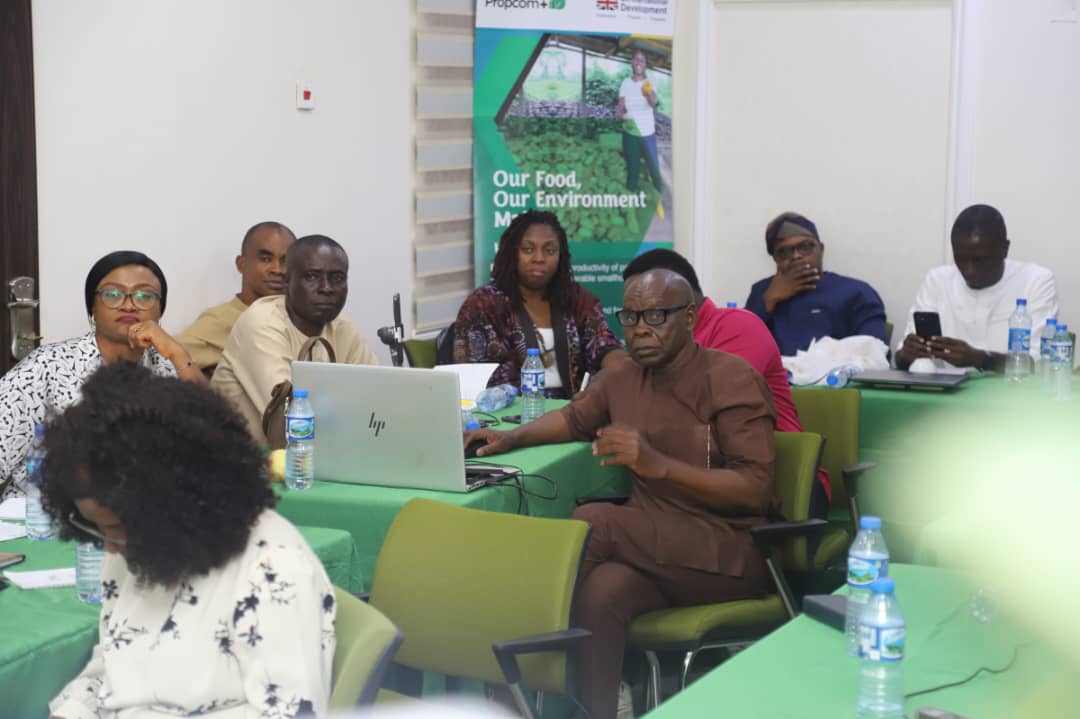
By Our Correspondent
Propcom+ has begun a three-day training for journalists from various media houses in Nigeria to build their capabilities on reporting Climate-Smart Agriculture (CSA).
The training which is being held in Adamawa State is aimed at increasing public understanding of the impact of climate change on agriculture as well as educating them about strategies for adapting to climate change, mitigating its effects, and ensuring food security.
Dr. Adiya Ode, Country Representative and Political Director for Propcom+, while delivering her opening remarks during the media training said the exercise was to equip the journalists with storytelling techniques to create impactful campaigns and raise awareness about climate resilience and food security.
Ode said that the initiative was part of Propcom+ program aimed at empowering smallholder farmers, building resilience, increasing productivity and boosting farmers’ income in the face of climate change.
She described journalists as partners in Propcom+’s strategy to stimulate action, inform the government, and influence public policy related to climate-smart agriculture.
During his presentation, Mr Adam Alqali, one of the facilitators, urged participants to champion CSA towards tackling impact of climate change on agriculture.
Alqali said that the training would equip participating journalists with storytelling techniques to raise awareness about CSA.
He said that the knowledge-sharing event would ensure that information about practical CSA solutions was disseminated more effectively to the public and to farmers in vulnerable communities.
He urged the journalists to adopt solution-driven approach to highlighting issues of CSA.
Our correspondent reports that no fewer than 21 journalists from various media houses from Nigeria are participating in the training which is expected to end on Thursday with a field engagement.
Propcom+ is an eight-year (2023-2030) UK Foreign, Commonwealth and Development Office (FCDO)-funded program working to transform Nigeria’s rural and agricultural sector by supporting climate-resilient and sustainable agriculture.
The initiative aims to benefit people, climate, and nature by empowering over 3.79 million rural farmers—50% women—to adapt to climate change, boost productivity, and protect natural ecosystems, with the goal of improving incomes and fostering inclusive economic growth.
-

 Politics2 years ago
Politics2 years agoFormer Gombe State APC Promoters Forum Chairman Attacked Following Political Commentary
-

 Leadership2 years ago
Leadership2 years agoBreaking: African Union Appoints Pantami as Co-Chair of the 4th Industrial Revolution Policy Council
-
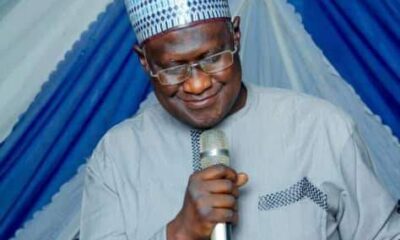
 Appointment1 year ago
Appointment1 year agoGombe State Indigene, Appointed New Vice Chancellor (ATBU)
-
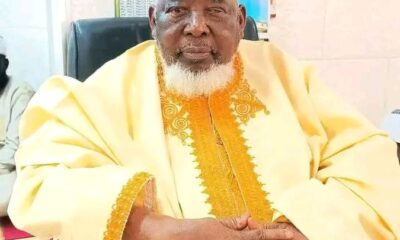
 Death12 months ago
Death12 months agoProminent Nigerian Islamic Scholar, Sheikh Sa’idu Hassan Jingir, Passes Away
-
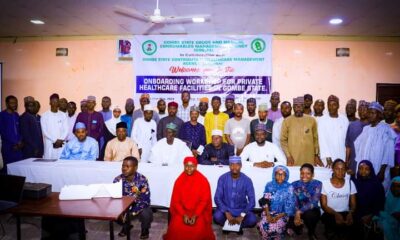
 Health2 years ago
Health2 years agoGombe State Organizes Onboarding Workshop for Private Healthcare Facilities
-
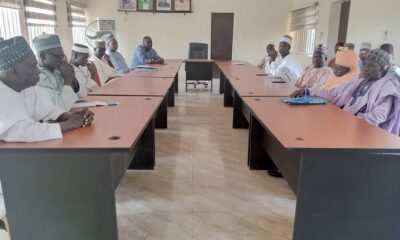
 Water2 years ago
Water2 years agoGombe Government Mobilizes Stakeholders to Combat Illegal Water Connections
-
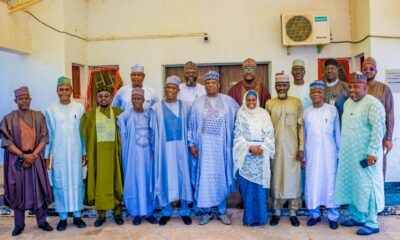
 Politics2 years ago
Politics2 years agoGombe State Inaugurates Human Capital Development Council
-
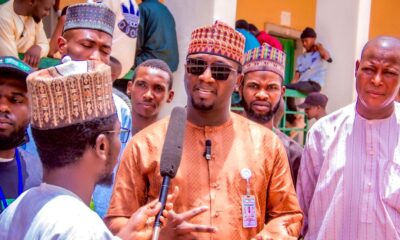
 Politics2 years ago
Politics2 years agoGombe State Launches Presidential Palliative Program (PPP) to Aid Small Businesses
